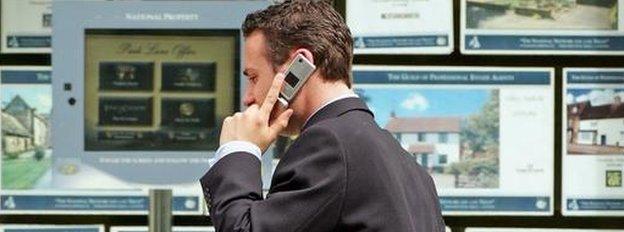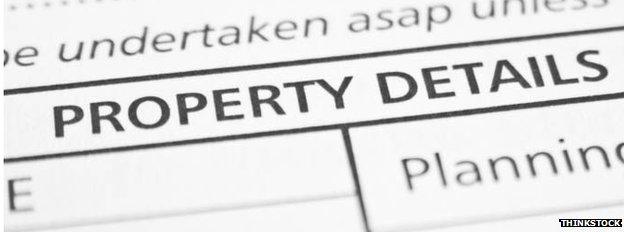'First-time buyers can make their life easier'
- Published

With little return on any savings, many thousands of pounds needed for a mortgage deposit, and rental costs taking a big chunk of money every month, financial life is tough for first-time buyers.
Activity in the housing market may not be at frenzied levels in many parts of the UK now, but housing experts expect further house price rises in the coming years.
A recent prediction from estate agent Savills suggests that property prices in the UK will rise by 19.3% by the end of 2019.
If wages and interest on savings fail to keep pace, then affordability will continue to concern those looking to buy a home for the first time.
Yet, there are still not far short of 1,000 first-time buyers securing a mortgage in the UK each day, in order to take their first steps on the property ladder.
Experts say that they can make this move - probably the biggest financial decision of their life - easier with good preparation.
The BBC News website asked two property experts to offer some tips to first-time buyers. Here are six of their more unusual suggestions.

1. You can find what you want in a week

Tracy Kellett, managing director of BDI Home Finders - a home buying agent, says most people should be able to find a home on the market that suits them within seven days.
She says that anyone being realistic about what they can get for their budget in a certain area should be able to find a property.
However she says that buyers need to "throw themselves into it" and be extremely focussed. That means searching hard and precisely, rather than strolling around an area during a weekend.

2. Borrow on a credit card (and pay it back)
Ray Boulger, of mortgage broker John Charcol, says that proving you are a regular saver does not help your credit score, which is key when applying for a mortgage.
Instead, having one or two credit cards which are paid off in full each month proves that mortgage applicants can handle credit.
He says that many lenders, including all the major ones, use a computerised credit scoring system to assess mortgage applications. So, he says, applicants have to make it easy for the computer to see a good credit score.

3. Be nice to estate agents

"Estate agents don't like tyre-kickers." says Mrs Kellett. "Put yourself in the position of the estate agent. They want an easy life and a decent buyer."
They are agents working on behalf of the seller, not the buyer. As a result, she says, first-time buyers might want to do as much as they can to ensure agents go a bit further to assist.
That means being enthusiastic, clear about the type of property required, and proving that mortgage finance is in place.
In return, an estate agent is more likely to pick up the phone to call this kind of buyer when a new, appropriate property comes onto the market.

4. Get on the electoral roll
Another tip from Mr Boulger about improving mortgage applicants' credit score is to get on the electoral register.
People lose points on their credit score if no permanent address and ability to vote is registered.
This is a particular issue for young adults who might have been moving around rented accommodation regularly as a student.
"A good idea for students will be to register at the parents' address, which will probably be the only permanent base during university," he says.

5. Spend on the professionals

It may be stating the obvious, but it costs a lot of money to move house, says Mrs Kellett.
In addition to the purchase price or mortgage deposit, there is the cost of removals, a survey and lots of legal checks.
Consequently, when spending tens, or possibly hundreds, of thousands of pounds on a house, it is worth spending some money securing the services of a good solicitor who is easy to contact, she says.
The same is true of a survey if the property is more than 10 years old, to check the house for defects that might not be obvious to the buyer, she adds.

6. Make a simple check six months before house-hunting
Finally, Mr Boulger says that before doing anything it is important for potential buyers to check their credit file.
He says that, preferably, this should be done with all three credit reference agencies - Experian, Equifax and Call Credit.
By doing so six months before applying for a mortgage, potential buyers will have time to correct any inaccuracies and omissions on the file.

The opinions expressed are those of the contributors and are not held by the BBC unless specifically stated. The material is for general information only and does not constitute investment, tax, legal or other form of advice. You should not rely on this information to make (or refrain from making) any decisions. Links to external sites are for information only and do not constitute endorsement. Always obtain independent, professional advice for your own particular situation.